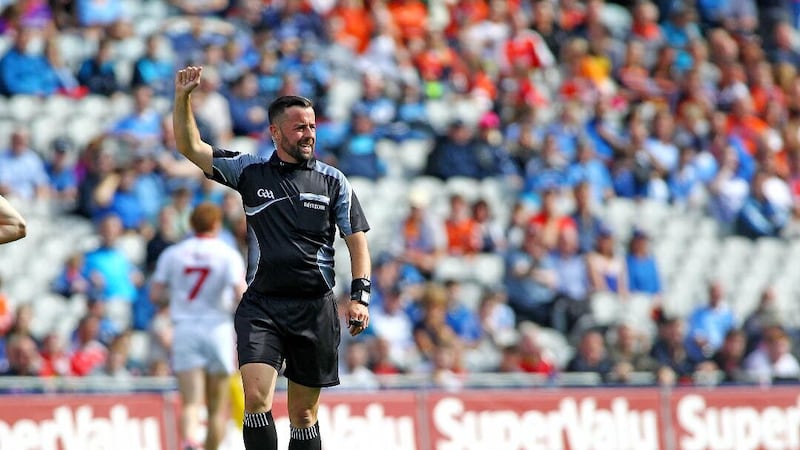The disconnect between British British government policy and rhetoric and what the people of Northern Ireland actually want grows ever wider.
The ground is shifting under Lord Frost’s feet, and he doesn’t have a democratic leg to stand on in his stand-off with the EU (not that he was ever elected to anything in the
first place).
A survey carried out by pollster LucidTalk for a Queen’s University study has found that 52 per cent of Northern Ireland adults think the Protocol is, on balance, “a good thing” for Northern Ireland, compared with 43 per cent in a similar survey in June. The percentage of respondents who agreed the Protocol provided Northern Ireland with a “unique set of post-Brexit economic opportunities” that could be beneficial also rose to 62 per cent, compared with 57 per cent in June. Even more remarkably, 87 per cent of respondents said they distrusted the British government’s ability to manage Northern Ireland’s interests regarding the Protocol. With the DUP currently languishing at 13 per cent in the polls, it means that virtually every single adult in Northern Ireland bar their allies, the DUP, now distrusts the British government.
The British government is delaying legislation, agreed by all the northern parties, which would make it more difficult to collapse the power sharing institutions. In Newton Emerson’s view (October 28) this is so that they can use the threat of a collapse of the institutions as an excuse to trigger Article 16 of the Protocol in their dispute with the EU.
Naomi Long has testified to a Westminster parliamentary committee that the Johnson government is using Northern Ireland as a political football in its dispute with the EU, while Alexandra Hall Hall, the lead Brexit envoy to the US, quit her job because she was unwilling to “peddle half-truths on behalf of a government I do not trust” and which had instructed her to downplay the consequences of Brexit for the delicate peace process in Northern Ireland.
That the British government could play fast and loose with the Belfast Agreement institutions in a bid to further its dispute with the EU on entirely spurious grounds is a measure of just how despicable these people are.
That even most unionists now believe they are being used in a dispute not of their making shows how transparent and obvious this perfidy has become. Is there no low to which Boris Johnson’s government cannot sink?
FRANK SCHNITTGER
Blessington, Co Wicklow
Why let truth get in the way of a good story?
Once again our two south-west conservatives, John Cushnahan and Maurice Fitzgerald (October 26), contribute misleading information. John states the “people of Ireland” are indebted to the leaders of the four main Churches for organising the Armagh service of reflection as he portrays it.
My family, friends and indeed our president consider ourselves ‘people of Ireland’ and in no way are indebted.
A poll in the 26 counties found 85 per cent agreed with the president’s stance.
Maybe John was enlightened by the late Ian Paisley’s regular “the people of Ulster have spoken” outrageous claims. The majority of people in Ireland spoke against John’s Fine Gael’s Black and Tan scandalous proposed commemoration.
Maurice for once makes some sense about the boycotting by unionists of the North South Ministerial Council meetings but can’t help himself by trying to have his usual dig at Sinn Féin. He quotes “the government (26 county) likes to keep their distance from Sinn Féin over their military wing and left-wing approach to politics, especially taxation”.
I don’t know where he gets his information from as it’s common knowledge the IRA no longer exists. Maybe they are still active in Co Cork in his imagination. No surprise Maurice is against taxing the rich more appropriately given his admiration for the English Tories. The electorate have obviously spoken in favour of Sinn Féin policies seeing they have the most TDs in the Dáil.
Another myth I must address is Jim Allister’s false claim that there are more Chinese, Polish and Lithuanian speakers in the six counties than ‘Irish’ speakers.
The fact is those three mentioned have their native language as their first tongue, whereas through no fault of our own, English is mainly our first tongue,
but Gaeilge speakers far outnumber foreign national speakers.
As with all the three above, why let the truth get in the way of a good story.
TOMÁS Ó DUGHABÁIN
Belfast BT11
Shameful legislation
In response to comments made by Mary Kelly (October 16), the miscarriage of a child is a heartbreaking tragedy. The abortion of a child is a deliberate and intentional act. ‘Embryo’ and ‘foetus’ are words for a human being in the early stages of development, similar to ‘infant’ and ‘baby’.
The attempt to introduce legislation to ban and criminalise pro-life protesters, is shameful, deceitful and despicable. It is an attempt by pro-abortionists to ensure that theirs is the only narrative to be tolerated in ‘the public square’.
Not one shred of evidence has been produced to back up abortionist allegations of ‘harassment’ and ‘intimidation’. The police already possess powers to apprehend and prosecute anyone guilty of what people allege against pro-life witnesses. The pro-life community in Northern Ireland must challenge, oppose and resist this legislation based on the denial of free speech, to a large section of the electorate.
Many children’s lives have been saved by legitimate, prayerful and peaceful protests outside abortion facilities. Many women are eternally grateful that they were offered real choice.
FR PATRICK McCAFFERTY
Belfast BT12
Budget versus COP 26
The UK budget is aimed at the next election; it is blatant ‘short-termism’; it is proof (yet again) that our adversarial political structure is bad for the environment and bad for democracy.
Covid and climate change are telling us to cooperate – our decision-making systems should therefore be inclusive. They will be in COP 26, albeit verbally. Domestically, however, politicians continue to use binary voting, a primitive and exclusive voting procedure. Indeed, in the UK and elsewhere, binary voting is often the basis of governance. But climate change is not binary – nor was Brexit.
Binary voting is about 3,000 years old. It is a blunt tool, often divisive, always Orwellian, sometimes inaccurate and at worst as in Northern Ireland, the Balkans, Rwanda, the old Soviet Union etc, a provocation to the even worse form of binary decision-making – violence.
Preferential voting was first advocated by Cardinal Nicholas Cusanus in 1433, developed by Jean-Charles de Borda in 1770, promoted by Rev Charles Dodgson (Lewis Carroll) a century later, and computerised by this Institute in 1991. It can identify the option with the highest average preference. Furthermore, such an inclusive polity may be a prerequisite of our collective survival.
PETER EMERSON
director, de Borda Institute, Belfast







